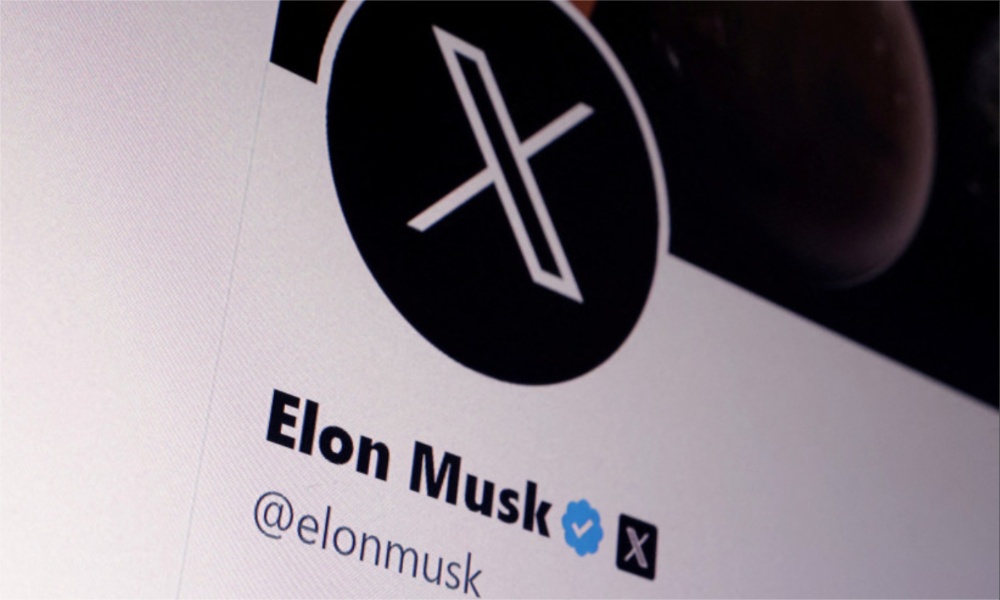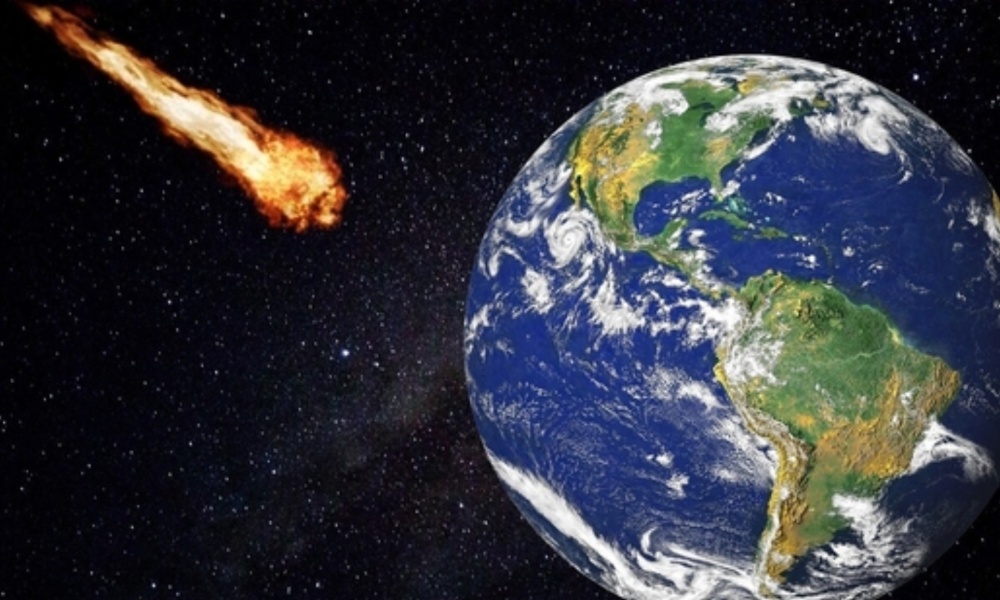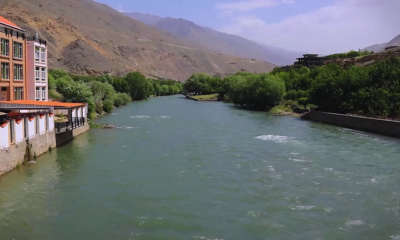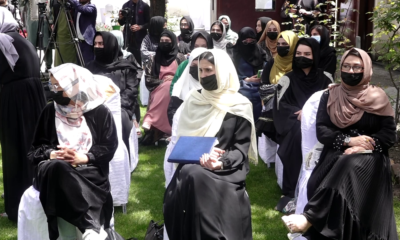Science & Technology
Pandemic pushes Chinese tech giants to roll out more courier robots

More than a thousand robots are set to join the delivery personnel ranks of Chinese behemoths Alibaba, Meituan and JD.com over the next year as the pandemic fuels demand for contactless services, Reuters reported.
The firms expect to operate over 2,000 robots between them by 2022, up about four-fold from now, their executives said, encouraged also by falling costs of making robots.
Millions of couriers still deliver packages for as less as 3 yuan ($0.47) in China, but companies have been exploring the use of drones or box-like robots on wheels from as early as 2013 amid a labour crunch that has worsened due to the pandemic.
According to the report Beijing has also ordered firms to ensure rest periods for couriers as they scramble to meet rising demand and deadlines.
“The COVID-19 pandemic has been a big boost” for robot rollout plans, said Xia Huaxia, chief scientist at Meituan.
The food-delivery giant launched its robot service in February 2020 when infections were high in Beijing, earlier than a planned end-year launch, read the report.
JD.com too brought forward its plans to launch its robot service, said Kong Qi, chief scientist of the e-commerce giant’s autonomous driving unit. It had targeted a June 2020 launch in Beijing, but started using the service in Wuhan in February as the central Chinese city was locked down.
“We want people and vehicles to work better together and not for vehicles to replace people. It is just in the most boring section of the delivery guy’s work that we will try to replace,” he said.
LIMITS VS BENEFITS
Still, human delivery personnel outnumber robots, which have limitations such as inability to climb stairs. Also, robots are only allowed on certain routes like in housing estates and school campuses because of speed limits and road conditions.
Robots also tend to be used to deliver less time-sensitive products like packages, rather than food.
“The efficiency is low for office areas where people are ordering a lot of food and parcels but the vehicle’s capacity is limited,” said 25-year-old Zhang Ji as she picked up a package delivered by an autonomous vehicle near her office in Beijing.
But proponents espouse long-term benefits of robots such as lower last-mile delivery costs. Researchers at the University of Michigan said fully and partially automated vehicles could cut delivery costs by 10−40% in cities.
Alibaba’s last-mile logistics vehicle has delivered over a million orders as of September to more than 200,000 consumers, the company said. It operates over 200 robots and plans to have 1,000 by March and 10,000 over the next three years, Reuters reported.
COSTS ARE DOWN
Costs of making robots are down, said Wang Gang, vice president at Alibaba who is in charge of autonomous driving, mainly due to lower prices of lidar sensors that help measure distances and render images around vehicles.
Alibaba and JD.com said the cost of making their robots was below 250,000 yuan ($38,662) apiece and falling.
JD.com, which operates about 200 robots, plans to expand to some 1,000 units by the end of 2021.
Meituan sees the cost of making its robots at around 400,000 yuan this year, versus 600,000 yuan in 2020, Xia said.
Meituan’s robot will cost less than 200,000 yuan in 2025, which is when the industry will see mass-application of over 10,000 units of such robots, Xia said.
Meituan currently has around 100 delivery robots, read the report.
Delivery firms in other countries have also been testing robots. Russian’s Yandex and online food-ordering company GrubHub plan to start using driverless robots to deliver food on U.S. college campuses.
“I hope robots can be used widely soon because it will make our life more convenient … it will also reduce face-to-face contact during the pandemic so we can be safer,” said 28-year-old Pan Hongju, a programmer in Beijing.
($1 = 6.4662 Chinese yuan)
Science & Technology
Meta releases new AI model Llama 4
Meta said in a statement that the Llama 4 Scout and Llama 4 Maverick are its “most advanced models yet” and “the best in their class for multimodality.”

Meta Platforms on Saturday released the latest version of its large language model (LLM) Llama, called the Llama 4 Scout and Llama 4 Maverick.
Meta said Llama is a multimodal AI system. Multimodal systems are capable of processing and integrating various types of data including text, video, images and audio, and can convert content across these formats.
Meta said in a statement that the Llama 4 Scout and Llama 4 Maverick are its “most advanced models yet” and “the best in their class for multimodality.”
Meta added that Llama 4 Maverick and Llama 4 Scout will be open source software. It also said it was previewing Llama 4 Behemoth, which it called “one of the smartest LLMs in the world and our most powerful yet to serve as a teacher for our new models.”
Big technology firms have been investing aggressively in artificial intelligence (AI) infrastructure following the success of OpenAI’s ChatGPT, which altered the tech landscape and drove investment into machine learning.
The Information reported on Friday that Meta had delayed the launch of its LLM’s latest version because during development, Llama 4 did not meet Meta’s expectations on technical benchmarks, particularly in reasoning and math tasks.
The company was also concerned that Llama 4 was less capable than OpenAI’s models in conducting humanlike voice conversations, the report added.
Meta plans to spend as much as $65 billion this year to expand its AI infrastructure, amid investor pressure on big tech firms to show returns on their investments.
Science & Technology
‘Massive cyberattack’ brings down Elon Musk’s X
Digital Trends reported Tuesday that there are reports suggesting X is still having issues

Social media platform X went down intermittently on Monday, with owner Elon Musk blaming an unusually powerful cyberattack.
“We get attacked every day, but this was done with a lot of resources. Either a large, coordinated group and/or a country is involved,” Musk said in a post on X on Monday.
He did not clarify exactly what he meant by “a lot of resources” and his comments drew skepticism from cybersecurity specialists, who pointed out that attacks of this nature — called denials of service — have repeatedly been executed by small groups or individuals.
X faced intermittent outages, according to Downdetector, Reuters reported.
Digital Trends meanwhile reported Tuesday that there are reports suggesting X is still having issues.
Internet industry experts have said X was hit by several waves of ‘denial of service’ throughout Monday.
Musk said in an interview with Fox Business Network’s Larry Kudlow the cyberattack came from IP addresses originating in the Ukraine area.
An industry source told Reuters he disputed Musk’s account, saying that large chunks of the rogue traffic bombarding X could be traced back to IP addresses in the United States, Vietnam, Brazil and other countries, and that the amount of rogue traffic coming directly from Ukraine was “insignificant.”
In any case, denial of service attacks are notoriously hard to trace back to their authors and the IP addresses involved rarely provide any meaningful insight into who was behind them, Reuters reported.
Musk has joined U.S. President Donald Trump, whom he serves as an adviser, in criticizing Ukraine’s continued efforts to fight off a Russian invasion.
Musk said on Sunday that Ukraine’s front line “would collapse” without his Starlink satellite communications service, though he said he would not cut off Ukraine’s access to it.
Science & Technology
NASA says ‘city killer’ asteroid has a 3.1 % chance of striking Earth in 2032
Despite the rising odds, experts say there is no need for alarm

An asteroid that could level a city now has a 3.1-percent chance of striking Earth in 2032, according to NASA data released Tuesday — making it the most threatening space rock ever recorded by modern forecasting.
Despite the rising odds, experts say there is no need for alarm. The global astronomical community is closely monitoring the situation and the James Webb Space Telescope is set to fix its gaze on the object, known as 2024 YR4, next month.
“I’m not panicking,” Bruce Betts, chief scientist for the nonprofit Planetary Society told AFP.
“Naturally when you see the percentages go up, it doesn’t make you feel warm and fuzzy and good,” he added, but explained that as astronomers gather more data, the probability will likely edge up before rapidly dropping to zero.
2024 YR4 was first detected on December 27 last year by the El Sauce Observatory in Chile.
Astronomers estimate its size to be between 130 and 300 feet (40–90 meters) wide, based on its brightness. Analysis of its light signatures suggests it has a fairly typical composition, rather than being a rare metal-rich asteroid.
The International Asteroid Warning Network (IAWN), a worldwide planetary defense collaboration, issued a warning memo on January 29 after the impact probability had crossed one percent. Since then, the figure has fluctuated but continues to trend upward.
NASA’s latest calculations estimate the impact probability at 3.1 percent, up from 1.6 percent last month, with a potential Earth impact date of December 22, 2032.
Richard Moissl, head of the European Space Agency’s planetary defense office, which puts the risk slightly lower at 2.8 percent told AFP that this “is not a crisis at this point in time. This is not the dinosaur killer. This is not the planet killer. This is at most dangerous for a city.”
If the risk rises over 10 percent, IAWN would issue a formal warning, leading to a “recommendation for all UN members who have territories in potentially threatened areas to start terrestrial preparedness,” explained Moissl.
Unlike the six-mile-wide (10-kilometer-wide) asteroid that wiped out the dinosaurs 66 million years ago, 2024 YR4 is classified as a “city killer” — not a global catastrophe, but still capable of causing significant destruction.
Its potential devastation comes less from its size and more from its velocity, which could be nearly 40,000 miles per hour if it hits.
If it enters Earth’s atmosphere, the most likely scenario is an airburst, meaning it would explode midair with a force of approximately eight megatons of TNT — more than 500 times the power of the Hiroshima bomb.
But an impact crater cannot be ruled out if the size is closer to the higher end of estimates, said Betts.
The potential impact corridor spans the eastern Pacific, northern South America, the Atlantic, Africa, the Arabian Peninsula, and South Asia — though Moissl emphasized it is far too early for people to consider drastic decisions like relocation.
The good news: there’s ample time to act.
NASA’s 2022 DART mission proved that spacecraft can successfully alter an asteroid’s path, and scientists have theorized other methods, such as using lasers to create thrust by vaporizing part of the surface, pulling it off course with a spacecraft’s gravity, or even using nuclear explosions as a last resort. — Agence France-Presse
-

 Latest News4 days ago
Latest News4 days agoMinistry of Economy calls on US to release Afghanistan’s frozen funds
-

 Latest News4 days ago
Latest News4 days agoPakistan ‘extends’ deadline for a week for Afghans to leave the country
-

 World5 days ago
World5 days agoAs Iran tensions build, US military moves warplanes to reinforce Middle East
-

 Sport4 days ago
Sport4 days agoIPL 2025: Batters in race for prestigious Orange Cap
-

 Latest News4 days ago
Latest News4 days agoPanjshir to Kabul water conduit project ‘waiting for budget approval’
-

 Latest News4 days ago
Latest News4 days agoFemale journalists complain about lack of access to accurate and timely information
-

 Business3 days ago
Business3 days agoExports to Pakistan grind to a halt over faulty scanner at Torkham
-

 Regional3 days ago
Regional3 days agoMilitary confrontation seems inevitable if no new Iran nuclear deal, France says
























